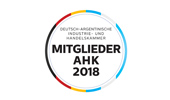On January 7, 2022, the General Resolution No. 5.135/2022 entered into force, implementing the Comprehensive Monitoring System for Payments Abroad of Services (“SIMPES” in Spanish).
This system applies to human persons, undivided successions and legal persons who must take payments abroad on their own account or that of third parties or that acts as payers of the payment, to cancel their own obligations or those of third parties, for the operations reached.
The Comprehensive Monitoring System for Payments Abroad of Services (“SIMPES” in Spanish) is a tool designated to analyse the fiscal compliance and financial economic capacity of taxpayers who make a payment abroad for contracted services.
It obligates the persons of its article 2, to provide information and to give express consent for the purposes that it be sent to the Central Bank of the Argentine Republic (BCRA) for its intervention within the framework of their competences.
This information will have the character of an Affidavit in the terms of article 28 “in fine” of Decree No. 1.397 of June 12, 1979, and its amendments. The data to be reported on the Argentine Tax Authorities (AFIP) website are the following:
- Data of the informant and data of the paying subjetct: CUIT, first and last name or business name and tax address.
- Transfer data: the concept (type of service), currency, amount to be transferred in pesos, approximate amount in foreign currency.
- Intervening financial institution.
- Data of the payment beneficiary: company name or denomination, NIF, tax residence, destination financial institution, country of destination, SWIFT code.
This declaration will be valid during the calendar month in which it was made. The Affidavit in an “approved” state may not be annulled or modified, and must be made, if appropriate, a new entry of information, to which the relevant controls will be applied. In the event of not being approved, it will be due to the fact that the subject did not satisfactorily comply with at least one of the required controls. The reason for rejection may be because:
- The CUIT is in Passive / Inactive state.
- The CUIT is in the base of unreliable taxpayers (apocryphal invoices).
- The CUIT is registered with bankruptcy status.
- The address presents inconsistencies.
- The CUIT is not registered in the Income Tax.
- Failure to submit the last expired Affidavit of Profits.
- Failure to submit the Affidavit of I.V.A. within the last monthly fiscal periods.
- Failure to present the last expired Affidavit of Personal Property.
- Failure to submit the Social Security Affidavit within the last 12 monthly fiscal periods.
- Failure to submit the last expired Affidavit of Alleged Minimum Profit.
- Failure to submit the las expired Affidavit of Personal Property – Shares and Corporate Participations.
- Failure to submit the SICORE’S Affidavit within the last 12 monthly fiscal periods.
- Failure to present the last expired Affidavit of Corporate Participations.
- Failure to fulfil the presentation of an Affidavit of Electronic Transfer of Accounting States General Resolution 3077.
- Existence of pending inspection requirements.
- Inconsistencies in Financial Economic Capacity.
The “SIMPES” obliges that for each payment made abroad for Services, certain data must be reported to AFIP, which will run the systemic processes for validation and approval, based on:
- The situation of the subject from the information available in his records.
- The Financial Economic Capacity (“CEF” in Spanish).
The Financial Economic Capacity System “CEF” was created in 2018 by the General Resolution No. 4.294 and contemplates a formula that calculates monthly an assessment of the Financial Economic Capacity of each taxpayer, which may consist of a certain amount. This parameter will be considered representative of its capacity to carry out, in principle, certain economic acts and their tax consequences or for foreign trade operations.
Those who make payments abroad for the following concepts of services listed, are obliged to make a request through “SIMPES”:
- Maintenance and repairs
- Other transport services
- Postal and courier services
- Construction services
- Insurance premiums
- Claims
- Insurance auxiliary services
- Financial services
- Telecommunications services
- Computer services
- Information services
- Charges for the use of intellectual property
- Research and development services
- Legal, accounting and managerial services
- Advertising services, market research and public opinion polls
- Architectural, engineering and other technical services
- Operational leasing services
- Trade-related services
- Other business services
- Audio-visual and related services
- Other personal cultural and recreational services.
Those who make payments abroad for the following concepts of services are not obliged to make a request through “SIMPES”:
- Freight services
- Passenger transport services
- Travel and other card payments
- Government services
- Health services by traveller assistance companies
Finally, the paying subject who does not have a valuation of the Financial Economic Capacity “CEF” calculated for that current month, will be included in the universe of next month’s “CEF” process.









